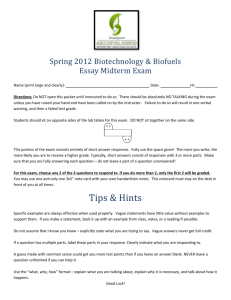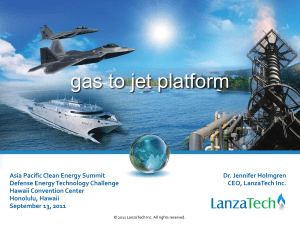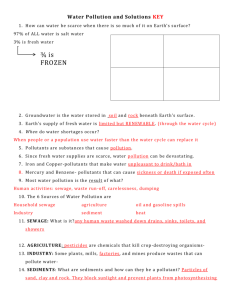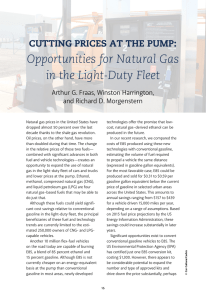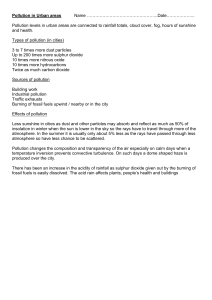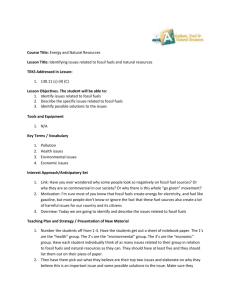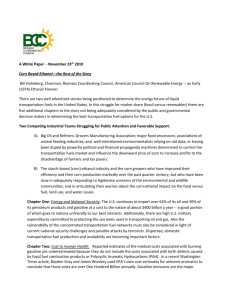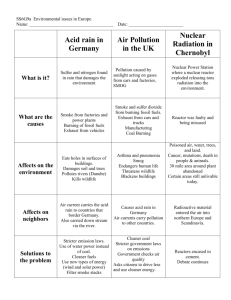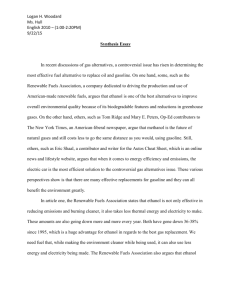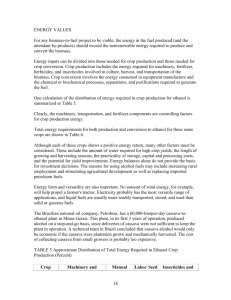Alternative Choices, Alternative Fuels The majority of automobiles
advertisement
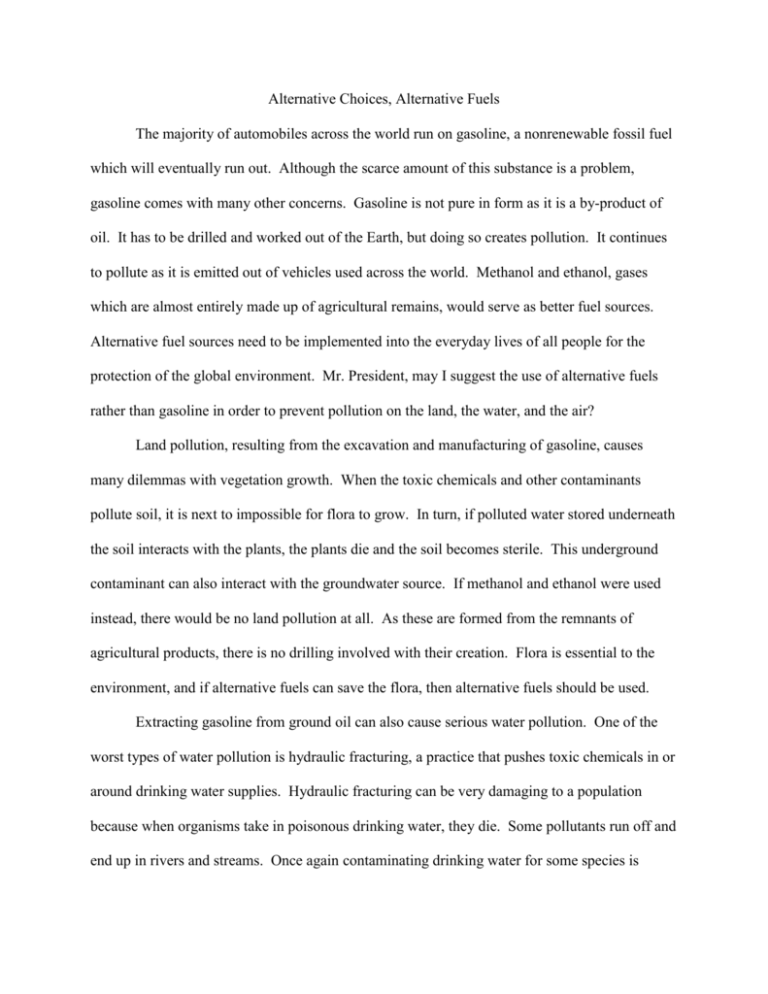
Alternative Choices, Alternative Fuels The majority of automobiles across the world run on gasoline, a nonrenewable fossil fuel which will eventually run out. Although the scarce amount of this substance is a problem, gasoline comes with many other concerns. Gasoline is not pure in form as it is a by-product of oil. It has to be drilled and worked out of the Earth, but doing so creates pollution. It continues to pollute as it is emitted out of vehicles used across the world. Methanol and ethanol, gases which are almost entirely made up of agricultural remains, would serve as better fuel sources. Alternative fuel sources need to be implemented into the everyday lives of all people for the protection of the global environment. Mr. President, may I suggest the use of alternative fuels rather than gasoline in order to prevent pollution on the land, the water, and the air? Land pollution, resulting from the excavation and manufacturing of gasoline, causes many dilemmas with vegetation growth. When the toxic chemicals and other contaminants pollute soil, it is next to impossible for flora to grow. In turn, if polluted water stored underneath the soil interacts with the plants, the plants die and the soil becomes sterile. This underground contaminant can also interact with the groundwater source. If methanol and ethanol were used instead, there would be no land pollution at all. As these are formed from the remnants of agricultural products, there is no drilling involved with their creation. Flora is essential to the environment, and if alternative fuels can save the flora, then alternative fuels should be used. Extracting gasoline from ground oil can also cause serious water pollution. One of the worst types of water pollution is hydraulic fracturing, a practice that pushes toxic chemicals in or around drinking water supplies. Hydraulic fracturing can be very damaging to a population because when organisms take in poisonous drinking water, they die. Some pollutants run off and end up in rivers and streams. Once again contaminating drinking water for some species is contaminated. With the pollution of rivers and streams, habitats are now in danger. Many fish die each year in part from water pollution. Alternative fuels cause no toxic run-off in rivers and streams, leaving drinking water and habitats uncontaminated. Much of the world’s air pollution is a result of the emission of gasoline from cars. Just the production of the substance creates a myriad of contaminant gases, including but not limited to benzene, carbon monoxide, dust, hydrogen sulfide, and sulfur dioxide. These harmful gases can cause many damaging effects on the human body such as blood disorders, dizziness, decreased visibility, respiratory illness, and heart conditions. Both carbon monoxide and hydrogen sulfide alone can cause death to anyone who inhales either one of them. Alternative fuels provide an easy solution to these serious problems. Ethanol alone can vastly lower the amount of greenhouse gas emissions – corn-based ethanol by up to fifty-two percent and cellulosic ethanol by up to eighty-six percent. “The carbon dioxide released when ethanol is burned is balanced by the carbon dioxide captured when the crops are grown to make ethanol. This differs from petroleum, which is made from plants that grew millions of years ago” (Ethanol). Alternative fuels would not only decrease the amount of pollutants in the air, but also decrease the amount of health problems which are becoming more and more prevalent in the human race. As Americans, it is our job to lead the world on the journey to a new and better fuel source; we can no longer be contributors to the pollution of the land, the water, and the air on this planet that we call home. It is unethical to continue to harm the Earth in the way that we have been doing for the past century. We need to sustain this world for future generations. If only a hundred people get involved in this movement they can make a difference. Even I, not being an adult, can contribute in this effort. I will only drive my car, which unfortunately does not run on alternative fuel, when I absolutely have to. This will limit the amount of pollutants it places in the environment. In the future I will only purchase automobiles that run on alternative fuels. The shift from gasoline to alternative fuels will not be an easy one, but I know that if we start immediately, it can be accomplished. Anybody can make the alternative choice to switch to alternative fuels. Word Count: 750 Work Cited "Ethanol Benefits and Considerations." Alternative Fuels Data Center. U.S. Department of Energy, 30 July 2012. Web. 25 Nov. 2012. <http://www.afdc.energy.gov/fuels/ethanol_benefits.html>.
